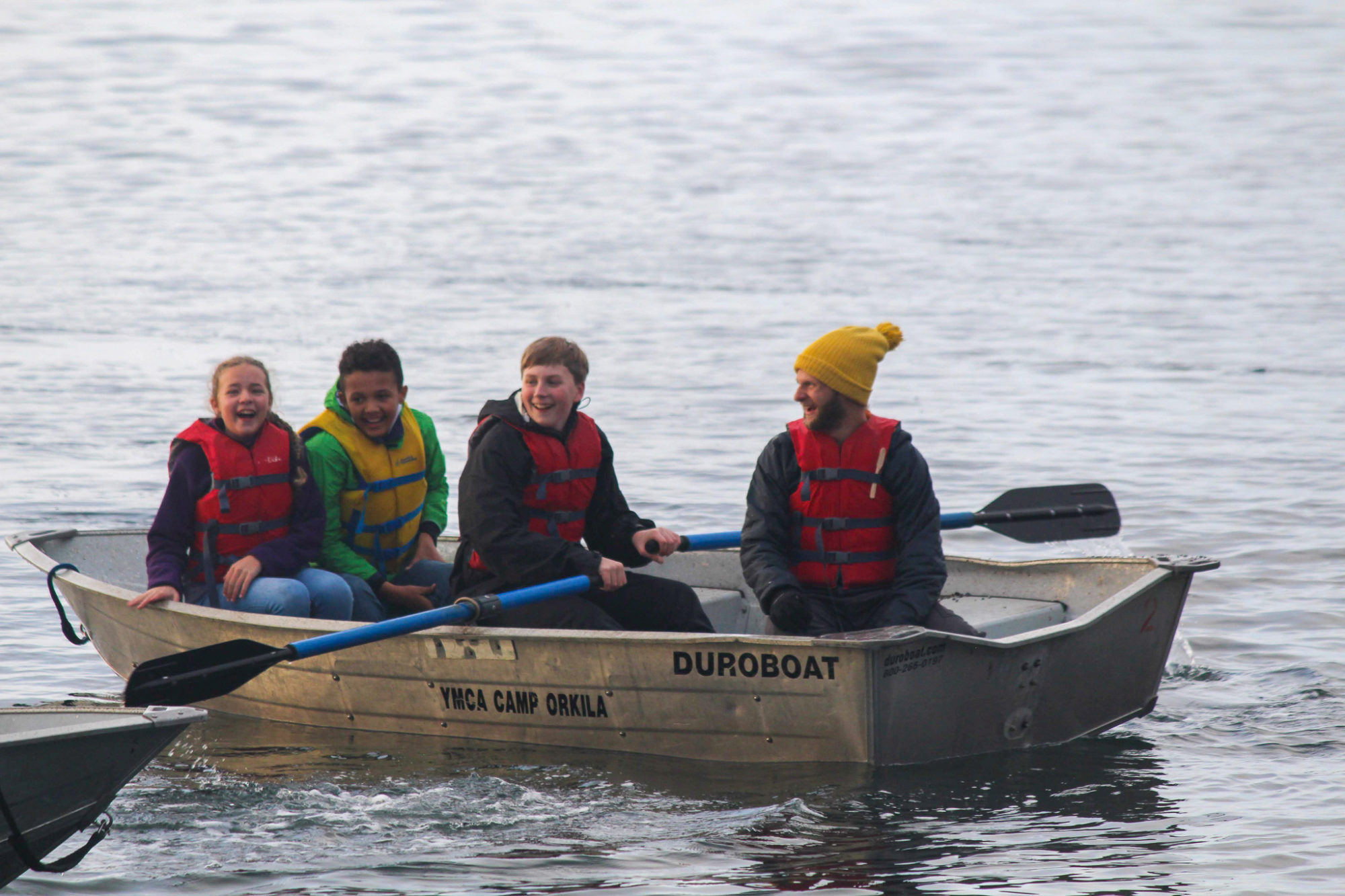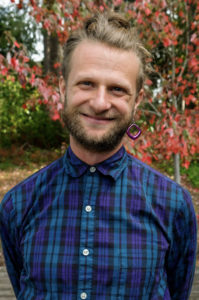Hyla Stories
Meet our New English Teacher!

Emelio DiSabato earned his MA from Columbia University’s Teachers College after graduating from Oberlin College with a degree in Latin. He taught middle school English in both New York and Colorado before moving to Washington to teach at Hyla. Emelio brings an inspiring wonder and
 excitement to his work and many hobbies to our community, including cycling, backpacking, pottery, and music – many of which will surely make appearances in Electives and Exploration Week. Here is a short Q&A to introduce you to Emelio.
excitement to his work and many hobbies to our community, including cycling, backpacking, pottery, and music – many of which will surely make appearances in Electives and Exploration Week. Here is a short Q&A to introduce you to Emelio.
What do you love about teaching English?
Engaging in the language arts is the practice of being human: communicating, understanding, relating experience, making meaning. This work can be messy, fraught, and challenging… but it is also the most gratifying work I know.
What do you like about Hyla?
My colleagues are consummate professionals. I am continually amazed by the creativity, dedication, and love that teachers bring to this school every day. These teachers plan fabulous projects and hunger for collaboration: this makes Hyla an inspiring and exciting place to work. There’s a positive feedback loop here: the fantastic things happening in different classrooms push each of us to elevate our own teaching, and that fantastic teaching promotes… it goes on and on! I’ve also been so impressed with the relationships that teacher build with Hyla students. Teachers know so much about their students, and they care deeply for them. The various extracurricular offerings — school trips, electives, retreats, overnights, Exploration Week — make this possible. Hyla gives adults and children ample space to know each other as people. It’s the dreamy sort of place that all schools should be.
What inspires your work and what outcomes do you strive to encourage in your students?
My work as an English teacher is driven by this double goal: that students become lifelong readers and writers. As writers, I want my students to develop strong writing muscles and the ability to write across genre, so that any invitation to write – be it journalism, essay, reflection, fiction – sparks that child to write long, with passion, and knowledge. At a more essential level, I want my students to see how writing is a way to process experience and generate ideas. A writing teacher I admire, Donald Murray, describes his notebook entries as a “great garage sale of junk,” and from it, he says, “I compost my life.” Yes, I say to him: yes! And reading: I strive to encourage young people to become ever more independent in their personal reading lives, to find increasingly mature and challenging literature that moves, startles, and delights them. When I think about this work, I often return to Dylan Thomas’ words on the topic: “My education was the liberty to read indiscriminately and all the time, with my eyes hanging out.” Amen.
